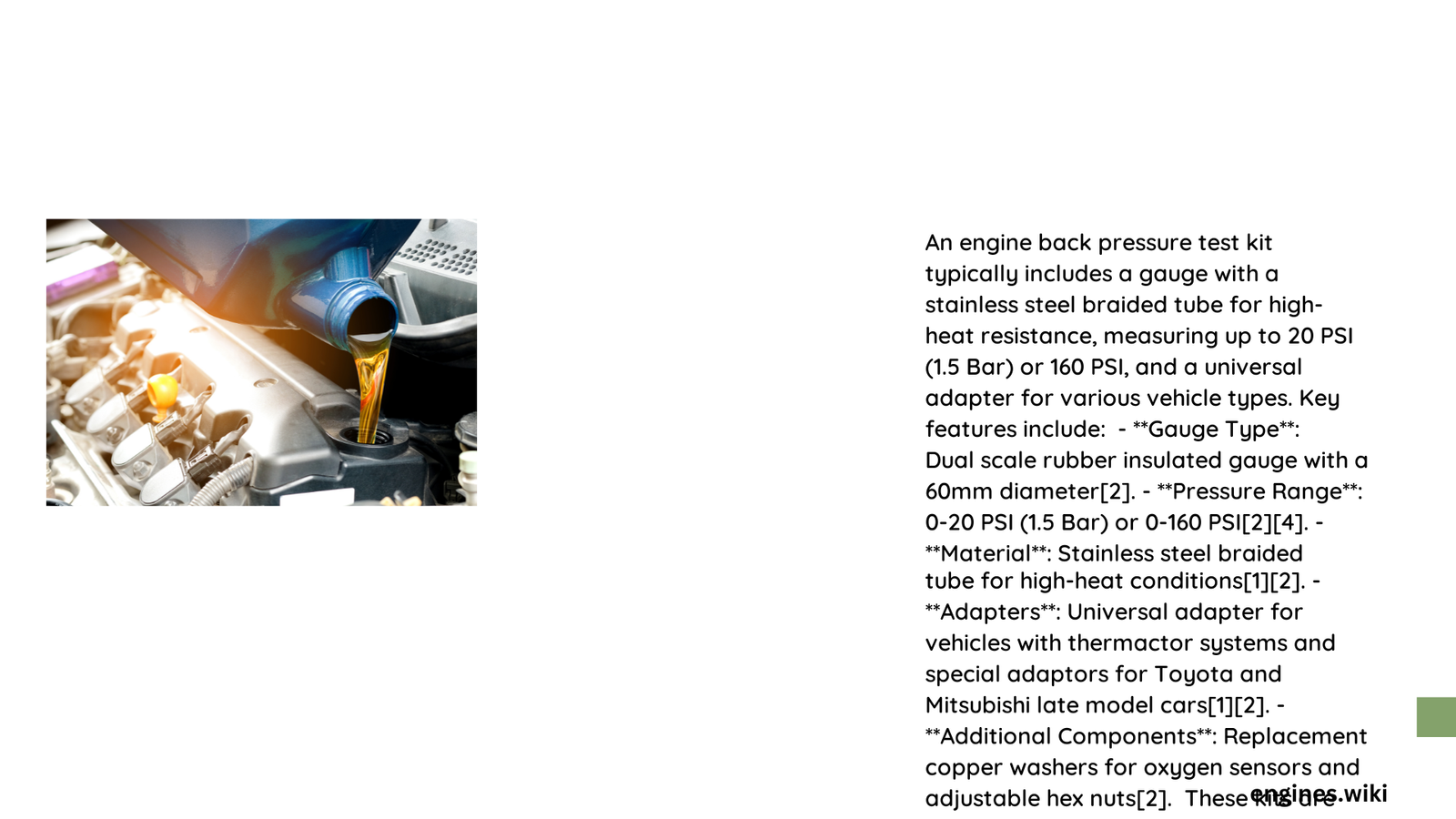An engine back pressure test kit is a critical diagnostic tool that allows mechanics and automotive enthusiasts to measure exhaust system restrictions by analyzing pressure levels within the exhaust manifold. This specialized equipment helps identify potential blockages, performance limitations, and potential damage risks in a vehicle’s exhaust system, enabling precise and proactive maintenance strategies.
What Makes an Engine Back Pressure Test Kit Essential?
Why Should Vehicle Owners Invest in a Back Pressure Test Kit?
Back pressure testing represents a fundamental diagnostic technique for understanding exhaust system health. By measuring the resistance within exhaust gases, technicians can:
- Detect potential blockages in catalytic converters
- Identify restrictions in exhaust manifolds
- Prevent potential engine performance degradation
- Diagnose potential exhaust system complications
What Components Comprise a High-Quality Back Pressure Test Kit?
A comprehensive engine back pressure test kit typically includes:
| Component | Function | Specification |
|---|---|---|
| Pressure Gauge | Measure Exhaust Pressure | 0-20 PSI Range |
| High-Temperature Hose | Connect to Exhaust System | Teflon Steel Wire, 280°C Resistance |
| Universal Adapters | Fit Various Oxygen Sensor Ports | Stainless Steel Construction |
How Do Professionals Conduct a Back Pressure Test?
Preparation Steps
- Ensure proper workspace ventilation
- Warm up vehicle engine to operating temperature
- Disconnect electrical connection to oxygen sensor
- Select appropriate adapter for test port
Testing Procedure
- Attach back pressure test kit to exhaust system
- Record pressure readings at idle and 2,500 RPM
- Compare measurements against manufacturer specifications
- Analyze potential restrictions or performance limitations
What Pressure Readings Indicate Potential Issues?
Typical acceptable back pressure ranges include:
– Idle: ≤ 1 PSI
– 2,500 RPM: ≤ 1.5 PSI
– Readings exceeding these ranges suggest potential exhaust system restrictions
What Are Common Symptoms of High Exhaust Back Pressure?
Vehicle owners might experience:
– Reduced engine performance
– Increased fuel consumption
– Engine overheating
– Decreased acceleration responsiveness
– Check engine light activation
How Much Does a Quality Back Pressure Test Kit Cost?
Price ranges vary based on kit complexity:
– Basic kits: $40 – $80
– Professional-grade kits: $100 – $150
– Advanced diagnostic kits: $150 – $250
What Factors Influence Back Pressure Measurements?
Critical factors include:
– Exhaust system design
– Vehicle make and model
– Engine type (gasoline vs. diesel)
– Catalytic converter condition
– Exhaust manifold integrity
Recommended Maintenance Practices
- Conduct back pressure tests annually
- Monitor readings during routine maintenance
- Address any detected restrictions promptly
- Use high-quality testing equipment
Conclusion

An engine back pressure test kit provides invaluable insights into exhaust system performance, enabling proactive maintenance and preventing potential costly repairs. By understanding pressure dynamics, vehicle owners can maintain optimal engine efficiency and longevity.
